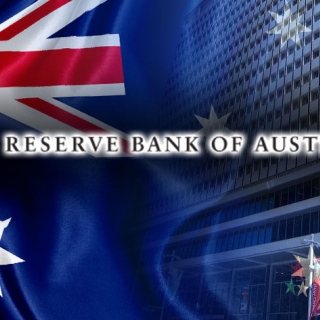


Australia's central bank cuts interest rate for the first time in more than four years
The Reserve Bank of Australia on Tuesday cut benchmark interest rates for the first time in over four years, joining ranks with other major global central banks, as softening inflation allows room for easing policy.
The RBA cut rates by 25 basis points to 4.10%. This marked the RBA's first easing since November 2020, when the central bank cut its key rate to a record low, as it battled a slowing economy during the pandemic.
The central bank had held its policy rate steady at 4.35% since November 2023, following an extended period of 13 rate hikes to tame inflation at home.
The Tuesday decision was in line with market expectations, with government bonds rallying in recent weeks on anticipation of an interest rate cut. The yields on Australian 10-year government bonds dropped nearly 20 basis points since Jan. 13 to 4.450% on Tuesday, according to LSEG data.
The RBA has lagged behind major global central banks that kicked off an easing cycle late last year.
In its last policy meeting in December, the central bank said it was more confident that inflation was declining and that might allow it to ease policy at some stage.
Australia's inflation over the 12 months through the December quarter eased to 2.4%, compared with 2.8% in the 12 months through September quarter, the Australian Bureau of Statistics data showed.
The RBA has pegged its medium term inflation target between 2% and 3%. On a quarter-on-quarter basis, the consumer price index rose 0.2% in the quarter ending December, softer than the forecast 0.3%.
Source: CNBC
Tested EN...
Asian stock markets weakened for the second consecutive day, indicating that the initial rally that had been "speedy" at the start of the year is starting to lose steam. At the same time, US governmen...
US stocks were mixed on Wednesday as investors weighed uneven economic data against expectations for eventual Federal Reserve easing, with the S&P 500 easing 0.2% and the Dow Jones sliding 0.8% fr...
European stocks were in mixed territory on Wednesday morning, as regional market jitters grow over U.S. President Donald Trump's threat to annex Greenland. The pan-European Stoxx 600 was little chang...
Asian stock markets weakened slightly on Wednesday after posting their best start to the year in history. The decline was driven by a decline in Japanese stocks amid escalating tensions with China. Th...
Oil prices stabilized on Thursday (February 12th), as the market reassigned a risk premium to US-Iran tensions despite US inventory data showing swelling domestic supplies. This movement confirms one thing: geopolitical headlines are still more...
Gold prices weakened slightly on Thursday (February 12th), as more solid US employment data reduced market confidence in an imminent Federal Reserve interest rate cut. The strong employment data prompted market participants to shift expectations of...
The Hang Seng Index reversed its downward trend in Hong Kong on Thursday (February 12th), weakening by around 0.9% to around 27,000 after a strong session earlier. This decline halted the momentum of the short term rally, as investors began to...